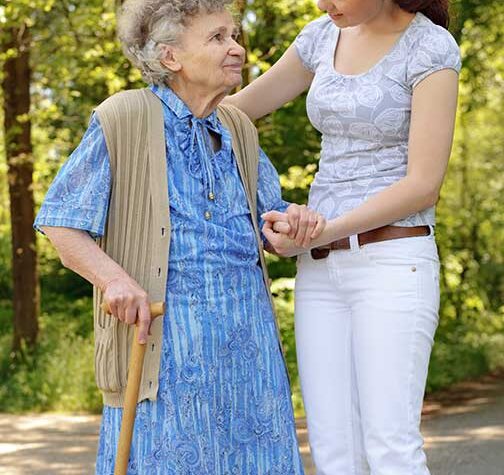Through the years, I have consulted with countless families and family members stepping up to care for a parent or grandparent. Everyone ages, and there comes a time when older or ailing loved ones need help. If you’re one of those first-time family caregivers, you are not alone.
If you’re caring for a grandparent, parent or other loved one for the first time, there will be both challenges and rewards in the months ahead. It can be difficult, and you might not even be sure where to start. Here are some tips to help you through the challenging months ahead:
- Familiarize yourself. Learn as much as you can about your loved one’s medical conditions. Know what to expect as they grow older and the conditions progress. It’s vital to be able to make informed decisions about the care your loved one will receive and whether it will require outside help.
- Share the responsibility. Don’t try to go it completely alone. Enlist a network of friends and family who can help with some of the many responsibilities of caregiving. It doesn’t have to involve major tasks. It could mean helping out with mundane duties like preparing a few meals a week or doing the grocery shopping.
- Consider respite care. You’re only human, and you will need to take a break now and then. Consider the feasibility of hiring a professional in-home caregiver through a certified, reputable agency to relieve you for a few hours each week in order to run errands or just spend some quality time relaxing.
- Join a support group. It’s easier to deal with the challenges of caregiving if you have someone to talk to. Consider joining a caregiver support group. This will let you discuss frustrations and problems with people who understand where you are coming from because they have been there too.
- Lean on technology. Human memory is fallible, especially in busy or stressful circumstances. There are smartphone apps that can help with daily caregiving tasks by providing medication and appointment reminders, helping create schedules with family members or professional caregivers, or taking notes.
Self-preservation is critical in this role. As a caregiver, absorbed in the task of caring for a loved one day in and day out, it can be hard to remember your own needs. Eventually, this can damage your emotional and physical health as the toll of exhaustion and stress mounts.
Watch for the signs of burnout. But it’s even better to set boundaries and care for yourself from the start. Make sure to eat healthy, get enough sleep, enjoy hobbies and downtime and, as the pandemic fades, socialize when possible. Remember, hiring a professional agency to assist can benefit not only your aging loved one, but yourself as well.
Whatever else happens, don’t forget that your loved one is an individual with their own wants and needs. Involve them in caregiving decisions, especially those that involve their health, living situation, or finances. When it can be done safely, allow them the independence to perform the daily tasks they are capable of. Give them a say in their own affairs. It will make the process smoother and reduce frustrations on both sides.
In the end, be patient with yourself and the loved one you are caring for. Prioritize your own health and don’t try to do everything yourself. Enjoy your time with your loved one and don’t despair. Help is available if you ask for it. Amada Senior Care provides complimentary consultations with a Certified Senior Advisor (CSA) to help you determine the best path forward for your family situation. They serve all of Middle Tennessee and their number is 615-933-7494. Give Amada Senior Care a call today, their staff is ready to serve and assist. Be well and enjoy the journey.














